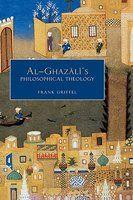
Book Summary
The Muslim theologian al-Ghazali, who was active at the turn of the 12th century in Iran, Iraq, and Syria, was one of the most influential theologians of Islam. In this book, Frank Griffel will present the most comprehensive examination to date of the life and thought of this important figure. The book is divided into two parts. In the first, Griffel gives an account of what it known about al-Ghazali's life, offers brief discussions of his major works, and examines the legacy of his thought by tracing the lineage of his students and followers. In the second part, he provides a systematic exploration of al-Ghazali's theology. He explicates al-Ghazali's views on epistemology, cosmology, physical theory, creation, ethics, theodicy, and a host of other topics. Throughout, he offers a serious revision to traditional views of al-Ghazali, showing that his most important achievement was the creation of a new rationalist theology in which he transformed the Aristotelian views of thinkers such as Avicenna to accord with motives that were well-established within Muslim theological discourse. The result is the most thorough available examination of a major thinker. The Muslim thinker al-Ghazali (d. 1111) was one of the most influential theologians and philosophers of Islam and has been considered an authority in both Western and Islamic philosophical traditions. Born in northeastern Iran, he held the most prestigious academic post in Islamic theology in Baghdad, only to renounce the position and teach at small schools in the provinces for no money. His contributions to Islamic scholarship range from responding to the challenges of Aristotelian philosophy to creating a new type of Islamic mysticism and integrating both these traditions-falsafa and Sufism-into the Sunni mainstream. This book offers a comprehensive study of al-Ghazali's life and his understanding of cosmology-how God creates things and events in the world, how human acts relate to God's power, and how the universe is structured. Frank Griffel presents a serious revision of traditional views on al-Ghazali, showing that his most important achievement was the creation of a new rationalist theology in which he transformed the Aristotelian views of thinkers such as Avicenna to accord with intellectual currents that were well-established within Muslim theological discourse. Using the most authoritative sources, including reports from al-Ghazali's students, his contemporaries, and his own letters, Griffel reconstructs every stage in a turbulent career. The al-Ghazali that emerges offers many surprises, particularly on his motives for leaving Baghdad and the nature of his "seclusion" afterwards. Griffel demonstrates that al-Ghazali intended to create a new cosmology that moved away from concerns held earlier by Muslim theologians and Arab philosophers. This new theology aimed to provide a framework for the pursuit of the natural sciences and a basis for Islamic science and philosophy to flourish beyond the 12th century. Al-Ghazali's Philosophical Theology is the most thorough examination to date of this important thinker.
Book Details
| Book Name | Al-Ghazali's Philosophical Theology |
| Author | Frank Griffel |
| Publisher | Oxford University Press, Usa (May 2009) |
| ISBN | 9780195331622 |
| Pages | 408 |
| Language | English |
| Price | 3752 |








